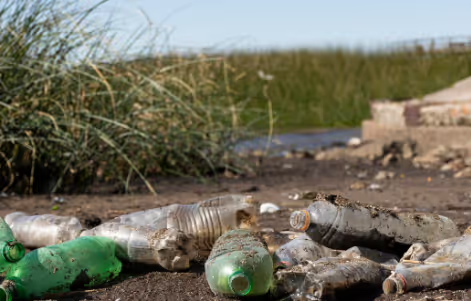Stay informed with our newsletter.
.webp)

.webp)

Talks aimed at forging a global treaty to curb plastic pollution have collapsed after days of negotiations ended without agreement. Nations remained sharply divided over key issues, including production caps, funding, and enforcement measures. While some countries pushed for binding commitments to reduce plastic waste, others resisted strict targets. The failure underscores the growing challenge of reaching consensus on tackling one of the world’s most pressing environmental crises.

International negotiations to hammer out a landmark treaty to end plastic pollution have once again broken down, underscoring the deep divisions between countries over how to tackle the crisis.
The latest round of UN-led talks the sixth in less than three years was scheduled to conclude Thursday but stretched late into the night as delegates scrambled to bridge a widening rift. Roughly 100 nations pushed for binding limits on plastic production, while oil-producing states insisted the focus remain on recycling.
By early Friday, Cuban delegates admitted negotiators had “missed a historic opportunity,” while urging nations to keep pressing forward. Britain’s Marine Minister Emma Hardy expressed disappointment, calling plastic pollution “a global crisis no country can solve alone.” She stressed that the UK remains committed to advancing a circular economy through international cooperation.
The negotiations, launched in 2022, were driven by mounting evidence of plastic’s dangers to both health and the environment. Scientists warn that plastics contain toxic chemicals that leach into ecosystems as they break down, creating microplastics now found in rivers, soil, the air and even inside the human body.
Island nations, represented by Palau, voiced frustration at the lack of progress. “It is unjust for us to face the brunt of yet another global environmental crisis we contribute minimally to,” Palau said.
The debate centers on whether the treaty should curb production at the source or focus on managing plastic waste after it’s created. Oil-rich countries such as Saudi Arabia and Russia, which view plastics as essential to their economies as demand for fossil fuels declines, argue that investment in recycling and waste collection is the solution.
“Plastics are fundamental for modern life,” said Ross Eisenberg, president of America’s Plastic Makers. “Focusing on ending plastic pollution should be the priority, not ending plastic production.”
But researchers counter that recycling alone cannot keep up. Global recycling rates sit at roughly 10%, and experts doubt they can rise much beyond 30%. “We do need to improve recycling, but we cannot hope it will solve all aspects of the plastic problem,” said Dr. Costas Velis of Imperial College London.
Plastic production has already skyrocketed from 2 million tons in 1950 to 475 million in 2022, and it continues to climb. Advocates, including the UK and EU bloc, pushed for caps on production and standardized designs to make recycling more viable. Major consumer brands like Nestlé and Unilever backed that approach, calling for extended producer responsibility a small levy on plastic products to fund recycling which they estimate could raise $576 billion globally by 2040.
Negotiation chair Luis Vayas of Ecuador introduced a compromise text that dropped explicit limits on production but called on countries to regulate toxic chemicals and redesign plastics for easier recycling. EU delegates welcomed the proposal as a foundation for future talks, but oil-producing states bristled, with Saudi Arabia calling the process “problematic” and Kuwait claiming its views were ignored.
Environmental groups condemned the collapse, accusing oil states of prioritizing profit over public health. “The inability to reach an agreement in Geneva must be a wake-up call for the world,” said Greenpeace’s Graham Forbes. “Ending plastic pollution means confronting fossil fuel interests head on.”
Talks are expected to resume at a later date, though the failure adds to delays after negotiators already missed a 2023 deadline for an agreement.
For questions or comments write to contactus@bostonbrandmedia.com
Source: BBC
